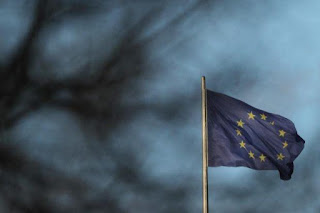The Times, 23 November 2015
http://www.timesofmalta.com/articles/view/20151123/opinion/Hope-and-not-terror.593252
If Albert Camus’s claim that he learned about morality and obligation through football is anything to go by, then last Tuesday the world witnessed a splendid example along these lines.
The football match between England and France was characterised by a strong sense of solidarity, symbolised by the singing of the French national anthem and the French flag all over the place.
The 90,000-strong attendance at Wembley stadium gave a shining example of the power of sport to unite people.
Such solidarity was also shown at other international football matches played in the past days, though there were also two bomb scares and some other unfortunate incidents.
The important thing, however, was that Europe stood up to be counted against the terrorist attacks in Paris. Europe showed that despite the psychology of terror propagated by ISIS, life must go on. In short, hope was given precedence over terror.
This sense of hope should ensure that international events such as the Climate Summit and the European Football Championship, and also daily events such as the celebration of everyday life in town squares, should take place.
Indeed, Europe should show resilience, just as it did in other terrible instances throughout its history, when war, intolerance, oppression and totalitarianism blemished the continent.
Europe should not give itself up to the politics of fear and negativism, but should make sure that its values of tolerance, equality, freedom, respect of rule of law are defended and celebrated.
Europe should also support all those who are resisting terrorism outside of Europe’s borders. Beirut and Ankara are only two recent examples of terrorist attacks on common people or on those whose civil society activism supports peace and democracy.
The extremity of ISIS’s methods should remind us of the dangers of all-or-nothing ideologies, as they are essentially anti-democratic and tyrannical.
To the contrary, the democratic structure of the European Union – with all its defects and shortcomings – respects different opinions and cultures, and assumes that no one has a monopoly over knowledge and ideas.
In such a context, European politics are based on adversaries within a democratic game and not enemies in a war. Adversaries play by the rules and respect difference. Conversely, enemies disregard the democratic rules of the game and instead resort to methods such as violence and intolerance.
Statements made by certain Far Right and
xenophobic groups within Europe play in the hands of those who want to
destroy the basic characteristics of European democracy
ISIS and other terrorist groups are enemies of Europe as they threaten the basic foundations of European democracy. At the same time, the EU and its member states should not embrace internal politics which point towards anti-democratic methods.
It is terrorism that should be treated with an iron fist, but not at the expense of democratic freedoms and inclusive policies.
In this regard, certain statements made by certain Far Right and xenophobic groups within Europe play in the hands of those who want to destroy the basic characteristics of European democracy.
Why should Europe pick upon refugees and cultural minorities, many of whom are actually fleeing from the terror of ISIS and others?
I think the government did the right thing in stating that it will respond to calls for assistance from France, in line with the Constitution. If Malta expects solidarity from other countries should Malta be a victim of terrorist attacks, then it is only fair that Malta plays its part in line with Europe’s mutual-defence clause.
In a society characterised by risks and unknowns, it would be naïve to expect that terrorism will disappear at one go, or through a couple of airstrikes. The potential terrorist is everywhere.
Some are terrorists out of ideological conviction; others are radicalised due to their social networks or social experiences. Hence, a plurality of tactics is required in anti-terrorist strategy, ranging from soft to hard methods, from immediate responses to longer-term processes.
But I think that it will be even more naïve and dangerous not to recognise that you cannot negotiate with terrorism. In such a context one should appreciate the difficult yet vital decisions taken by political leaders to enhance security while defending the values and freedoms of democracy: a democracy based on pluralism, diversity, different opinions and mutual respect.



